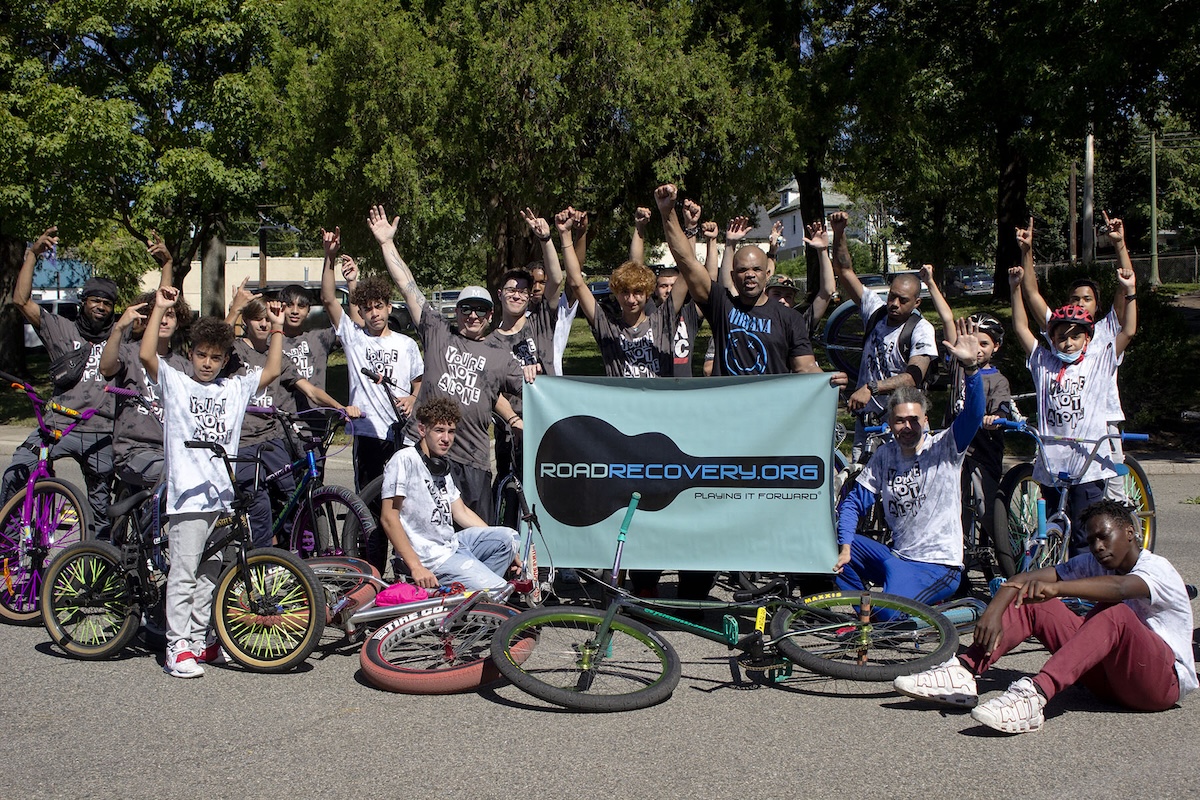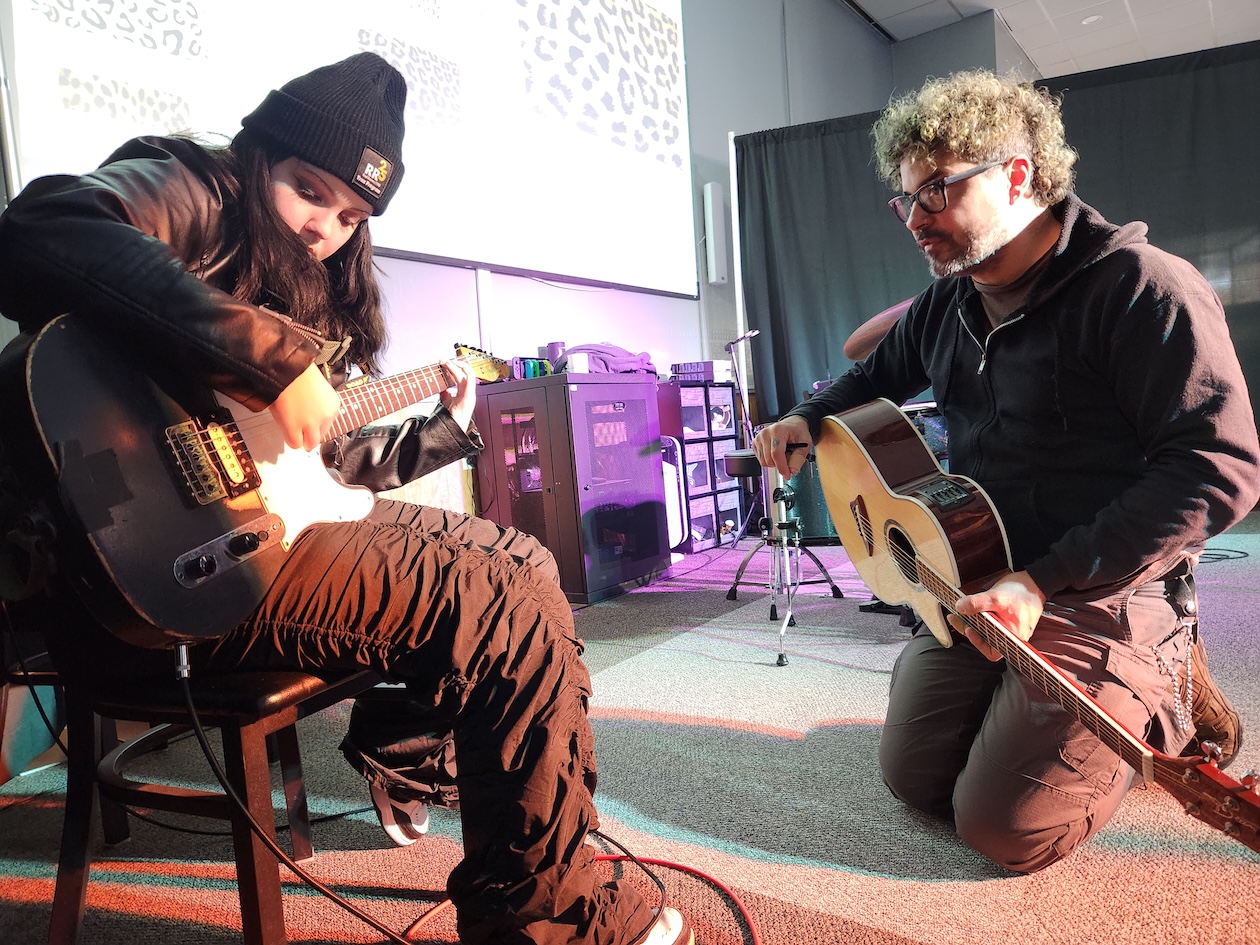
It was 1992 when Gene Bowen hit rock bottom. As a tour manager for various rock bands in the ‘80s, his daily routine included getting drugs for the musicians and road crews he worked with. He was also responsible for helping certain artists stay clean when needed, many times when he couldn’t stay sober himself.
“Alcohol was always the elixir,” Bowen says during our virtual interview. “And then the stimulant was cocaine. But the way to relax was heroin. So I was a pharmacist. And by the time 1992 rolled around, physically, mentally, and spiritually, I was shot. I [could] no longer go on the road. I was at a point where I was gonna die.”
More from Spin:
- Every Fleetwood Mac Album, Ranked
- 5 Albums I Can’t Live Without: The Ting Tings
- Apple Boards First Authorized Fleetwood Mac Doc
Thanks to family members and a few close friends in the music industry, he sought help and got sober. He also made the decision to leave the music industry.

(Credit: Gene Bowen)
But two years later Bowen was pulled back in. Jack Bookbinder, who was part of Jeff Buckley’s management team, asked him to be Buckley’s tour manager for the latter half of his Grace world tour. Bowen was hesitant because of his history of addiction, knowing that it would be all too easy to relapse on the road. But with the support of Bookbinder, Buckley, and everyone at Sony Entertainment, he agreed.
Throughout the tour, once people learned about his addiction and recovery, they would tell Bowen about their own personal issues; everything from eating disorders to dyslexia to losing loved ones due to addiction, suicide or mental health issues. After the tour ended, Bowen thought about all those stories, and realized that addiction and behavioral health issues were a very big part of the music industry.
In 1998, the year after Buckley died, Bowen, along with Bookbinder, created Road Recovery, a creative arts mentor program for 13- to 25-year-olds dedicated to helping them as they battle addiction and other adversities in their lives. The nonprofit is driven by music industry professionals with the support of Sony Entertainment, Warner Brothers, Dreamworks Records, and Buckley’s mother, Mary Guibert, and has been going strong for 27 years.
“The whole goal of what we set forth to do is to create an organization that could teach healthy coping skills, communication skills, and life skills for at-risk youth…to utilize the voice and the strength from people of our industry who are willing to be open about their adversity and the solutions they were living…“ says Bowen. “…then engage with young people to elevate their voice, to come together, draw strength and support each other, and then turn that voice into something creative.”
Road Recovery staff partners with behavioral health and medical experts, alongside music industry professionals to facilitate its Trax Program, which according to their website: “offers young people the opportunity to build healthy networks during challenging times, helping them avoid self-destructive or risky behavior. The program’s goal is to empower and inspire them through self-expression and creativity while teaching invaluable life skills.”
Bowen and Bookbinder have been able to recruit some names you might recognize: Slash, Tom Morello, Fred Schneider from the B-52’s, and Darryl McDaniels from Run-DMC are just a few of the celebrity musicians who have helped mentor in the program.
“Whether it’s just people who are just doing their daily jobs in the industry or the rock stars who have all the cash and prizes, they want to connect with a young person,” says Bowen. “And I think for all of us, the reason why we do this work is we see ourselves in the eyes of these kids and we know what they’re going through.”
To see our running list of the top 100 greatest rock stars of all time, click here.
